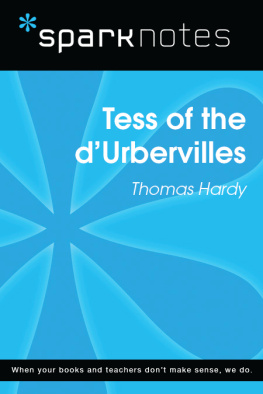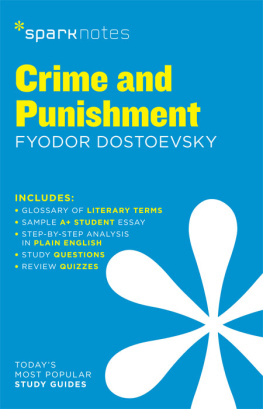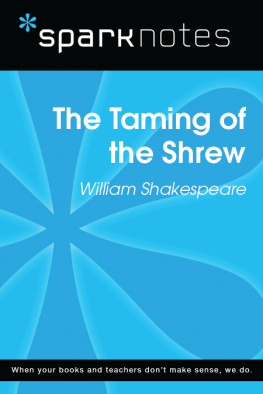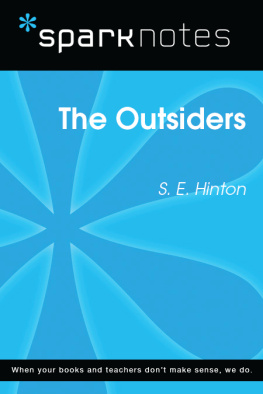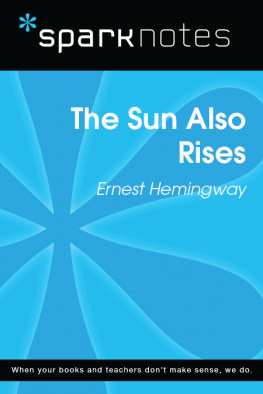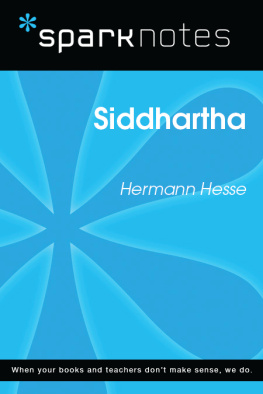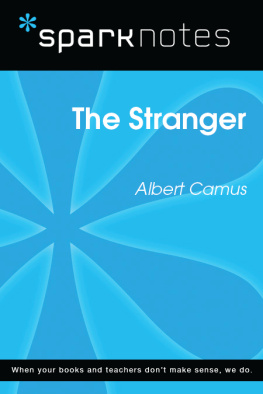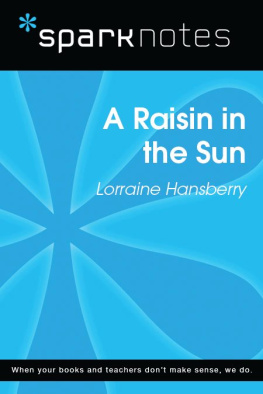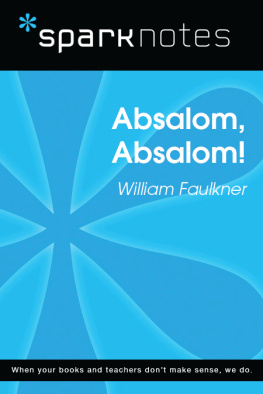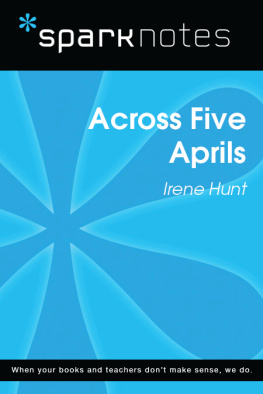Tess of the dUrbervilles
Thomas Hardy
2003, 2007 by Spark Publishing
This Spark Publishing edition 2014 by SparkNotes LLC, an Affiliate of Barnes & Noble
All rights reserved. No part of this publication may be reproduced, stored in a retrieval system, or transmitted in any form or by any means (including electronic, mechanical, photocopying, recording, or otherwise) without prior written permission from the publisher.
Sparknotes is a registered trademark of SparkNotes LLC
Spark Publishing
A Division of Barnes & Noble
120 Fifth Avenue
New York, NY 10011
www.sparknotes.com /
ISBN-13: 978-1-4114-7855-8
Please submit changes or report errors to www.sparknotes.com/.
10 9 8 7 6 5 4 3 2 1
Context
T homas Hardy was born on June , 1840 , in Higher Bockhampton in Dorset, a rural region of southwestern England that was to become the focus of his fiction. The child of a builder, Hardy was apprenticed at the age of sixteen to John Hicks, an architect who lived in the city of Dorchester. The location would later serve as the model for Hardys fictional Casterbridge. Although he gave serious thought to attending university and entering the church, a struggle he would dramatize in his novel Jude the Obscure, declining religious faith and lack of money led Hardy to pursue a career in writing instead. He spent nearly a dozen years toiling in obscurity and producing unsuccessful novels and poetry. Far from the Madding Crowd, published in 1874 , was the authors first critical and financial success. Finally able to support himself as a writer, Hardy married Emma Lavinia Gifford later that year.
Although he built a reputation as a successful novelist, Hardy considered himself first and foremost a poet. To him, novels were primarily a means of earning a living. Like many of his contemporaries, he first published his novels in periodic installments in magazines or serial journals, and his work reflects the conventions of serialization. To ensure that readers would buy a serialized novel, writers often structured each installment to be something of a cliffhanger, which explained the convoluted, often incredible plots of many such Victorian novels. But Hardy cannot solely be labeled a Victorian novelist. Nor can he be categorized simply as a Modernist, in the tradition of writers like Virginia Woolf or D. H. Lawrence, who were determined to explode the conventions of nineteenth-century literature and build a new kind of novel in its place. In many respects, Hardy was trapped in the middle ground between the nineteenth and twentieth centuries, between Victorian sensibilities and more modern ones, and between tradition and innovation.
Soon after Tess of the dUrbervilles ( 1891 ) was published, its sales assured Hardys financial future. But the novel also aroused a substantial amount of controversy. In Tess of the dUrbervilles and other novels, Hardy demonstrates his deep sense of moral sympathy for Englands lower classes, particularly for rural women. He became famous for his compassionate, often controversial portrayal of young women victimized by the self-righteous rigidity of English social morality. Perhaps his most famous depiction of such a young woman is in Tess of the dUrbervilles. This novel and the one that followed it, Jude the Obscure ( 1895 ), engendered widespread public scandal with their comparatively frank look at the sexual hypocrisy of English society.
Hardy lived and wrote in a time of difficult social change, when England was making its slow and painful transition from an old-fashioned, agricultural nation to a modern, industrial one. Businessmen and entrepreneurs, or new money, joined the ranks of the social elite, as some families of the ancient aristocracy, or old money, faded into obscurity. Tesss family in Tess of the dUrbervilles illustrates this change, as Tesss parents, the Durbeyfields, lose themselves in the fantasy of belonging to an ancient and aristocratic family, the dUrbervilles. Hardys novel strongly suggests that such a family history is not only meaningless but also utterly undesirable. Hardys views on the subject were appalling to conservative and status-conscious British readers, and Tess of the dUrbervilles was met in England with widespread controversy.
Hardy was frustrated by the controversy caused by his work, and he finally abandoned novel-writing altogether following Jude the Obscure. He spent the rest of his career writing poetry. Though today he is remembered somewhat more for his novels, he was an acclaimed poet in his time and was buried in the prestigious Poets Corner of Westminster Abbey following his death in 1928 .
Plot Overview
T he poor peddler John Durbeyfield is stunned to learn that he is the descendent of an ancient noble family, the dUrbervilles. Meanwhile, Tess, his eldest daughter, joins the other village girls in the May Day dance, where Tess briefly exchanges glances with a young man. Mr. Durbeyfield and his wife decide to send Tess to the dUrberville mansion, where they hope Mrs. dUrberville will make Tesss fortune. In reality, Mrs. dUrberville is no relation to Tess at all: her husband, the merchant Simon Stokes, simply changed his name to dUrberville after he retired. But Tess does not know this fact, and when the lascivious Alec dUrberville, Mrs. dUrbervilles son, procures Tess a job tending fowls on the dUrberville estate, Tess has no choice but to accept, since she blames herself for an accident involving the familys horse, its only means of income.
Tess spends several months at this job, resisting Alecs attempts to seduce her. Finally, Alec takes advantage of her in the woods one night after a fair. Tess knows she does not love Alec. She returns home to her family to give birth to Alecs child, whom she christens Sorrow. Sorrow dies soon after he is born, and Tess spends a miserable year at home before deciding to seek work elsewhere. She finally accepts a job as a milkmaid at the Talbothays Dairy.
At Talbothays, Tess enjoys a period of contentment and happiness. She befriends three of her fellow milkmaidsIzz, Retty, and Marianand meets a man named Angel Clare, who turns out to be the man from the May Day dance at the beginning of the novel. Tess and Angel slowly fall in love. They grow closer throughout Tesss time at Talbothays, and she eventually accepts his proposal of marriage. Still, she is troubled by pangs of conscience and feels she should tell Angel about her past. She writes him a confessional note and slips it under his door, but it slides under the carpet and Angel never sees it.
After their wedding, Angel and Tess both confess indiscretions: Angel tells Tess about an affair he had with an older woman in London, and Tess tells Angel about her history with Alec. Tess forgives Angel, but Angel cannot forgive Tess. He gives her some money and boards a ship bound for Brazil, where he thinks he might establish a farm. He tells Tess he will try to accept her past but warns her not to try to join him until he comes for her.
Tess struggles. She has a difficult time finding work and is forced to take a job at an unpleasant and unprosperous farm. She tries to visit Angels family but overhears his brothers discussing Angels poor marriage, so she leaves. She hears a wandering preacher speak and is stunned to discover that he is Alec dUrberville, who has been converted to Christianity by Angels father, the Reverend Clare. Alec and Tess are each shaken by their encounter, and Alec appallingly begs Tess never to tempt him again. Soon after, however, he again begs Tess to marry him, having turned his back on his -religious ways.

